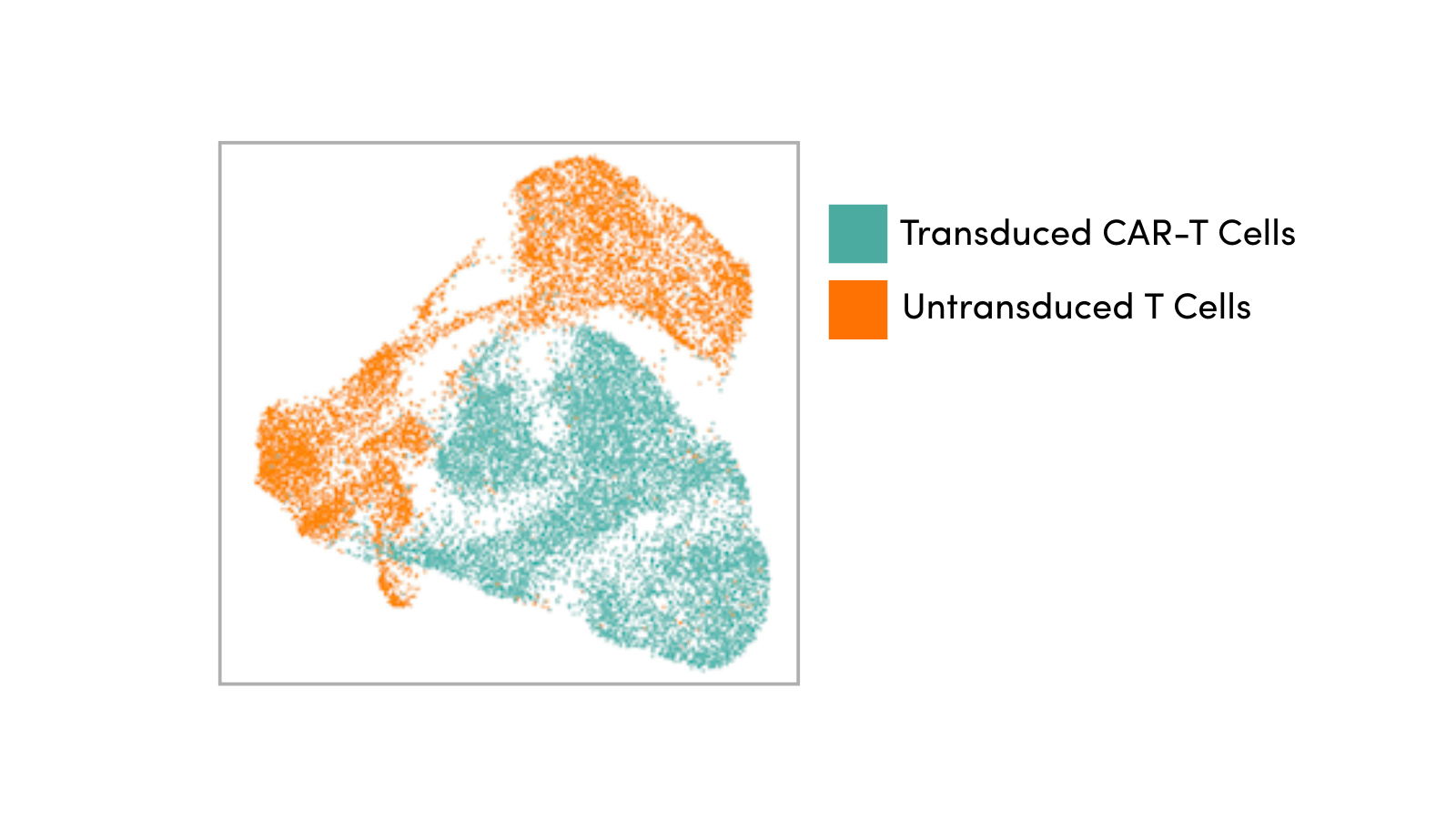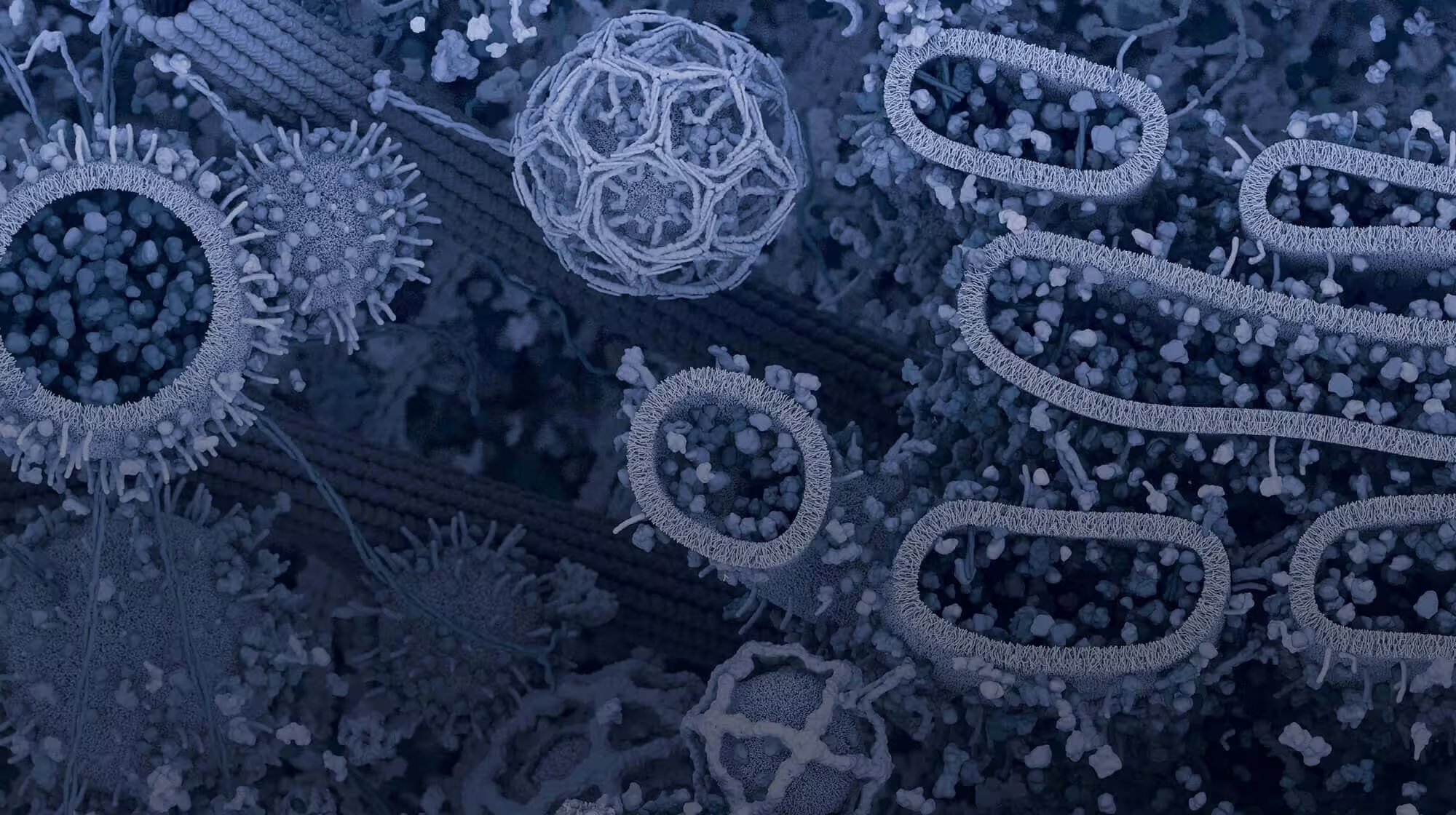Science is a collaborative effort—a joint pursuit where each discovery builds on the foundation built by prior research. But what if a piece of that scientific foundation is flawed?
A recent Nature paper by Entrop et. al. about a widely used monoclonal antibody that has been on the market and used as a reagent for decades has sent ripples through the scientific community by calling into question the validity of over 1,500 published studies that used the reagent. In the paper, the authors demonstrate that this reagent in question, designed to detect Bcl-2-associated X protein, or Bax, binds non-specifically to a protein that has the same molecular weight as Bax, but which, through carefully controlled validation experiments, was shown to not be Bax.
Concerningly, as of April 2025, four months after this troubling paper was published, the antibody reagent remains available for purchase—and proudly boasts a 4.6/5 star rating.
Broken Bax: Is scientific understanding of this critical protein flawed?
Due to its essential role in regulating cell death by apoptosis, Bax has been implicated in a wide range of diseases, including neurological disorders, cancers, autoimmune and inflammatory conditions, and cardiovascular events.
At least, researchers think they know what role Bax may be playing in these conditions. However, since the antibody used to measure Bax was likely binding to an entirely different protein, its role in some of these scenarios could be called into question.
In the article “Why Bax detection in >1400 publications might be flawed,” authors Kristin Entrop, Senait Wieske, and Markus Rehm demonstrate that, in Bax knockout and Bax-deficient cells, the Santa Cruz Biotechnology reagent Bax Antibody (B-9): sc-7480 (the "Santa Cruz antibody") gives “false-positive signals at the expected molecular weight of Bax in immunoblotting experiments and likewise provides false-positive signals in immunofluorescence-based detection of Bax expression.”
%20sc-7480%20vs%20CST%20Bax%20Antibody.webp?width=550&height=444&name=Santa%20Cruz%20(B-9)%20sc-7480%20vs%20CST%20Bax%20Antibody.webp) Figure 1. Western blots showing signals obtained from whole cell extracts of parental and Bax-deficient cells, as indicated. GAPDH served as a loading control. (Figure Credit: Entrop, K. et al, Why Bax detection in >1400 publications might be flawed. Cell Death & Disease (2024), Published under CC by 4.0.)
Figure 1. Western blots showing signals obtained from whole cell extracts of parental and Bax-deficient cells, as indicated. GAPDH served as a loading control. (Figure Credit: Entrop, K. et al, Why Bax detection in >1400 publications might be flawed. Cell Death & Disease (2024), Published under CC by 4.0.)
Comparatively, the authors of the Entrop paper note that the Cell Signaling Technology reagent Bax Antibody #2772 clearly indicates a loss of Bax expression in the respective Bax deficient cells (Figure 1 above).
Further experiments by the authors of the Entrop paper using siRNA confirmed that the Santa Cruz Antibody not only mistakenly detects a non-specific protein with the same molecular weight as Bax (~25 kDa) in western blots, but actually fails to detect Bax entirely (i.e., there are not two overlapping signals at the expected molecular weight.) Refer to the Entrop paper to see the data and for additional details.
The Role of Bax in Apoptosis
Bax is a key regulator of induced apoptosis, the programmed cell death process for eliminating damaged or diseased cells. Under cellular stress, Bax translocates from the cytosol to the mitochondria and helps form pores in the outer mitochondrial membrane. This leads to the release of cytochrome c and other apoptotic factors, triggering caspase activation and cell death.
Bax is particularly relevant in cancer research, where it acts as a tumor suppressor, as well as in neurodegenerative disease, where excessive apoptosis can cause neuronal loss.
CST Has Got Your Bax: Antibodies You Can Trust
|
“Research studies examining the role of Bax in apoptosis frequently rely on the accurate measurement of its abundance and subcellular localization under different types of cellular stress,” explains Gary Kasof, PhD, Sr. Development Scientist at CST. “Studies using a non-specific antibody would be misleading—if the reagent used to detect Bax is actually detecting an unrelated protein, the study would fail to reveal the functions of Bax, and could even cause confusion by erroneously calling into question other studies that have accurately characterized Bax functions.”
Therefore, the over 1,500 studies that have used the Santa Cruz Antibody may have the accuracy of their findings called into question.
The Cost of a Bad Research Antibody
According to The Antibody Characterization through Open Science (YCharOS, pronounced ‘Icarus’), an initiative that aims to characterize commercially available research antibodies, the use of ineffective antibodies is estimated to waste around $1 billion in research funding each year.1
“Our testing at YCharOS has shown that many research antibodies from commercial vendors do not perform as advertised—they either do not recognize the intended protein or recognize the protein as well as non-intended targets," explains Carl Laflamme, PhD, YCharOS co-founder. “We evaluate an average of 15 antibodies per target using our application-specific antibody characterization strategy and the good news is that we can typically identify one or two antibodies that are specific and reliable for each application tested."
However, since there isn’t a standardized mechanism to validate and compare antibody performance, it can be difficult for researchers to know if the reagents they rely on are working as intended. YCharOS has found that hundreds of the underperforming antibodies identified in their testing have been used in peer-reviewed articles, and estimates that "20-30% of figures in the literature are generated using antibodies that do not recognize their intended target".1
But the costs incurred by improperly validated antibodies are not only paid by the researchers who use them—they ultimately affect the broader scientific community as well. This includes not only the thousands or even millions of dollars spent on wasted experiments, but also the months or even years of researcher salaries and time spent troubleshooting, analyzing incorrect data, and replicating failed experiments.
 Immunohistochemical analysis of paraffin-embedded mouse lung using recombinant monoclonal antibody Bax (D3R2M) Rabbit mAb #14796.
Immunohistochemical analysis of paraffin-embedded mouse lung using recombinant monoclonal antibody Bax (D3R2M) Rabbit mAb #14796.
There’s also the wasted money spent on invalidated research. While figures can vary greatly, conservative estimates show that the average study costs somewhere between $100,000 and $750,000.2 In the instance of the Bax antibody, with the validity of over 1,500 papers called into question in the Entrop Paper, this represents between $150 million and $1.25 billion in misallocated and wasted resources.
But it doesn’t stop there. There’s also the wasted time and effort of an unknown number of researchers who spend time reading and reviewing questionable data, and potentially attempting to replicate their faulty findings. Then there’s the cost of the research that is delayed, postponed, canceled, or mis-designed due to inaccurate conclusions drawn from the incorrect research.
The estimated cost and waste described above are largely based on the potential impact on academic researchers, but drug development and clinical research are just as apt to suffer from reproducibility issues. In one astonishing seminal study, Begley and Ellis reported that only six of 53 “landmark” preclinical research publications could be faithfully reproduced.3 While many factors have been proposed to explain the scientific reproducibility crisis, poor quality or incompletely validated research reagents are believed to be a significant contributor to this problem.4 Overall, an estimated $28 billion is wasted each year on preclinical research that is not reproducible,5 leaving researchers to chase false leads that obstruct real advancement.
Every dollar spent on bad antibodies is a dollar not spent on real breakthroughs.
“While imagining the potential consequences of a bad antibody might seem like a purely theoretical exercise, let’s not forget there are real researchers who are affected,” says Katherine (Katie) Crosby, Sr Director of Antibody Applications & Validation, CST. “Finding out that your hard-earned findings need to be retracted would be heartbreaking. What would be even more frustrating would be when the error is the result of a manufacturer selling a bad product. This is why CST is so fanatical about antibody validation—we’re scientists ourselves. We care about good science, and we also care about the researchers who do it.”
In this blog, we’ve talked about a single antibody that doesn’t work as intended. However, the scary thing is that what’s been described here isn’t unusual. In fact, YCharOS found in their initial analysis of antibodies for neuroscience-related proteins that as many as two-thirds of reagents do not work as recommended by manufacturers 1
Based on YCharOS' initial analysis, with around 7.7 million research antibody products on the market, manufactured by nearly 350 global suppliers, this means there are potentially over five million research antibodies being sold today that won’t work as expected when used in experimentation.
“While many antibodies are bad, there are also high-quality options available, such as in the case of Bax," says Laflamme. “The key is to source antibodies from leading manufacturers, to pay careful attention to the validation data provided by the vendor, and to perform testing in your lab to ensure the reagent will work in your experiment.”
Even though CST is one of the oldest antibody manufacturers, we have a comparatively small catalog of antibody reagents—around 13,500 compared to the over 100,000 you’ll find from some other vendors. Our small catalog enables us to sell only reagents that we’re 100% sure are specific and will perform correctly. Our stringent validation standards might take more time and effort, but we believe it’s worth it. It’s why we can guarantee that our antibodies will work as intended—the first time and every time.
“Our cells are essentially a ‘black box’ and we rely on tools like antibodies to very carefully and meticulously piece together what’s going on inside them,” adds Crosby. “Since we can’t see what’s happening with our own eyes, it’s vitally important that the tools we use work as we expect them to.”
For over a quarter-century, CST scientists have set the standard for antibody quality by adhering to one immutable principle: do good science. As a company founded, led, and composed of dedicated scientists, we know that researchers need tools they can rely on to perform exactly as promised.

%20sc-7480%20vs%20CST%20Bax%20Antibody.webp?width=550&height=444&name=Santa%20Cruz%20(B-9)%20sc-7480%20vs%20CST%20Bax%20Antibody.webp)










